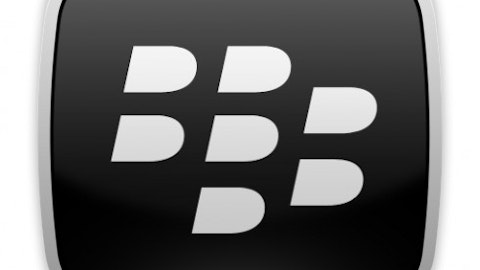In response to these companies, Facebook released Facebook Home, the Android home screen launcher replacement that attempts to bury other apps beneath its Facebook skin. By making Facebook chat the only chat option within Facebook Home, it attempts to block out other chat apps. Chat apps also undermine Facebook’s authority in another way – it builds an instant social network from users’ phone books, rather than a slow system of email searches and friend requests. This has made some apps, such as Kik Messenger, more popular with teenagers than Facebook or Twitter.
Google Inc (NASDAQ:GOOG) is also scrambling to create a unified messaging product, codenamed Babel. Babel will work across phones, tablets and desktops, and offer integration with Chrome and Google+ hangouts. Google’s extensive desktop and Android ecosystems will give it a major advantage on this front. With a single Google login, Google could draw all of its users together onto a single chat app platform. What’s more, Google has $50 billion in cash, compared to Facebook’s $9.5 billion, which means that it could simply start buying up independent competitors such as WhatsApp.
Meanwhile, Apple Inc. (NASDAQ:AAPL)’s iMessage, which was introduced in iOS 5, is a cross-platform chat app that works across its desktop, tablet and smartphone platforms. However, unlike Facebook or Google Inc (NASDAQ:GOOG), Apple doesn’t have the grand ambition to become a sprawling social network ecosystem that dominates the entire Internet. By comparison, iMessage merely seems like a way for iOS users to keep in touch with each other, extending the cult appeal of Apple Inc. (NASDAQ:AAPL)’s products.
Microsoft Corporation (NASDAQ:MSFT)’s Skype, while considered one of the most widely used chat apps in the world, could become a liability for its parent company. Although Skype’s free Internet-to-Internet voice chats are extremely popular, it generates the majority of its revenue from paid services, such as Internet-to-landline calls. The popularity of free VoIP chat apps, combined with the new 4G LTE networks, could make Skype look outdated by comparison. Skype also lacks many of the more advanced features of its Asian competitors.
The Foolish Future
Although traditional SMS and email aren’t likely to disappear anytime soon, mobile chat apps are a hot market that should be watched carefully. While the revenue growth of the major players hasn’t been impressive, their massive user bases are.
In March, research firm IDC forecast that smartphone vendors will ship 918.6 million smartphones in 2013, a number which will climb to 1.5 billion by 2017. Over that time, higher mobile Internet speeds will make HD video chats and crystal clear VoIP calls via chat apps a reality. When that happens, we might not even need phone numbers anymore, since all text and voice chats would be made directly via smartphone apps.
While the future looks bright for chat app companies and smartphone vendors, Internet giants Facebook, Google and Microsoft need to tread carefully. Meanwhile, telecom companies, which shoulder the high costs of building massive data networks, should be downright terrified.
The article Let the Mobile Chat Wars Begin! originally appeared on Fool.com and is written by Leo Sun.
Copyright © 1995 – 2013 The Motley Fool, LLC. All rights reserved. The Motley Fool has a disclosure policy.


